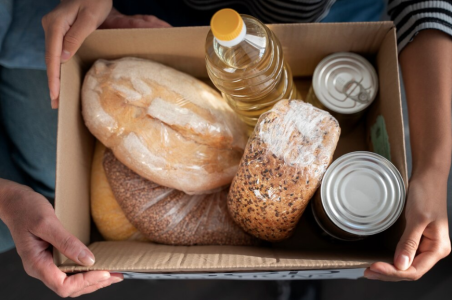Supermarket giants issue response to allegations of wasting 'edible' food
By
VanessaC
- Replies 8
In an era where the cost of living is soaring, and food security is a growing concern, the practices of Australia's supermarket giants, Coles and Woolworths, regarding food waste have come under intense scrutiny.
Recent accusations have surfaced, claiming that these retailers are discarding a 'significant portion' of 'consumable food', a move that seemed counterintuitive at a time when many Australians struggle to make ends meet.
Simon Eden, an Adelaide-based dumpster diver, has brought these allegations to light, asserting that he has witnessed Coles and Woolworths employees deliberately destroying food packaging and its contents—a deliberate tactic that would deter individuals from salvaging food from supermarket bins.
The response from Coles and Woolworths was swift and unequivocal.
Both retailers have denied these claims, stating that their policy is to donate 'unsold, edible' food rather than to dispose.
They have emphasised their commitment to community welfare and environmental sustainability and have highlighted their partnerships with food rescue organisations such as SecondBite and Foodbank.
'Every Coles supermarket and distribution centre has a food waste solution available,' a Coles spokesperson said.
Meanwhile, a spokesperson from Woolworths said: 'Every one of our stores has a partnership with a local hunger relief organisation, passing on any food that can’t be sold but is still safe to eat.'
Each state also has its own food waste and recycling processes in place. But in Adelaide, Woolworths has clarified that food that cannot be donated is composted.
The process involves removing the food from its packaging, which could potentially be the activity that Eden observed.
While Coles did not confirm their composting practices, has indicated that they have a variety of food waste solutions in place, saying, 'We have other food waste solutions including donations to farmers and animal or wildlife services, as well as organic food collections.'
The issue of food waste is not just about corporate responsibility; it's also a matter of public health and safety.
Both Coles and Woolworths have cited these concerns as reasons for discouraging dumpster diving.
The risks associated with uncontrolled access to food waste bins, such as the lack of temperature control to ensure food safety, are significant.
A Senate inquiry into supermarket pricing has highlighted the distressing reality that more Australians are resorting to dumpster diving as the cost of living continues to rise.
Amelia Cromb from Grassroots Action Network Tasmania has voiced her dismay at the volume of food being discarded by supermarkets, often before the expiration of best-before dates.
'It just seems like such a cruel mockery almost that people are going to supermarkets to buy food that is a human right…and at the end of the day, the supermarket can just basically rip the tag off that high price, throw it in the bin as though it had no value at all,' she said.
'It's criminal, there's no other way to put it, it's just unacceptable.'
It's important to distinguish between 'use-by' and 'best-before' dates.
'Food should not be eaten after the use-by date and can't legally be sold after this date because they may pose a health or safety risk,' the Food Standards Australia and New Zealand guidelines read.
On the other hand, food that has best-before dates may lawfully be given or sold to people 'provided it is fit for human consumption'.
 What are your thoughts on this issue, dear members? Share them with us in the comments below.
What are your thoughts on this issue, dear members? Share them with us in the comments below.
Recent accusations have surfaced, claiming that these retailers are discarding a 'significant portion' of 'consumable food', a move that seemed counterintuitive at a time when many Australians struggle to make ends meet.
Simon Eden, an Adelaide-based dumpster diver, has brought these allegations to light, asserting that he has witnessed Coles and Woolworths employees deliberately destroying food packaging and its contents—a deliberate tactic that would deter individuals from salvaging food from supermarket bins.
The response from Coles and Woolworths was swift and unequivocal.
Both retailers have denied these claims, stating that their policy is to donate 'unsold, edible' food rather than to dispose.
They have emphasised their commitment to community welfare and environmental sustainability and have highlighted their partnerships with food rescue organisations such as SecondBite and Foodbank.
'Every Coles supermarket and distribution centre has a food waste solution available,' a Coles spokesperson said.
Meanwhile, a spokesperson from Woolworths said: 'Every one of our stores has a partnership with a local hunger relief organisation, passing on any food that can’t be sold but is still safe to eat.'
Each state also has its own food waste and recycling processes in place. But in Adelaide, Woolworths has clarified that food that cannot be donated is composted.
The process involves removing the food from its packaging, which could potentially be the activity that Eden observed.
While Coles did not confirm their composting practices, has indicated that they have a variety of food waste solutions in place, saying, 'We have other food waste solutions including donations to farmers and animal or wildlife services, as well as organic food collections.'
The issue of food waste is not just about corporate responsibility; it's also a matter of public health and safety.
Both Coles and Woolworths have cited these concerns as reasons for discouraging dumpster diving.
The risks associated with uncontrolled access to food waste bins, such as the lack of temperature control to ensure food safety, are significant.
A Senate inquiry into supermarket pricing has highlighted the distressing reality that more Australians are resorting to dumpster diving as the cost of living continues to rise.
Amelia Cromb from Grassroots Action Network Tasmania has voiced her dismay at the volume of food being discarded by supermarkets, often before the expiration of best-before dates.
'It just seems like such a cruel mockery almost that people are going to supermarkets to buy food that is a human right…and at the end of the day, the supermarket can just basically rip the tag off that high price, throw it in the bin as though it had no value at all,' she said.
'It's criminal, there's no other way to put it, it's just unacceptable.'
It's important to distinguish between 'use-by' and 'best-before' dates.
'Food should not be eaten after the use-by date and can't legally be sold after this date because they may pose a health or safety risk,' the Food Standards Australia and New Zealand guidelines read.
On the other hand, food that has best-before dates may lawfully be given or sold to people 'provided it is fit for human consumption'.
Key Takeaways
- Coles and Woolworths have been accused of wasting consumable food, but they refuted the claims and stated that they donate unsold, edible food to charities.
- Simon Eden, a dumpster diver, allegedly witnessed staff at these supermarkets deliberately destroying food.
- Coles and Woolworths explained that food not fit for human consumption but still safe for animals is donated, while other unsold items are composted.
- Food past its use-by date must be discarded due to health and safety regulations, while those past best-before dates can still be given away if fit for consumption.








